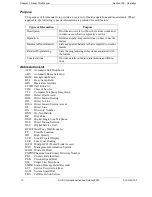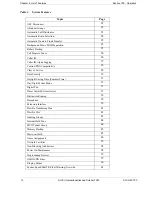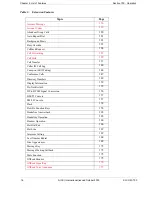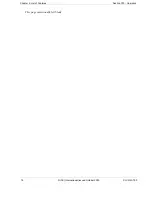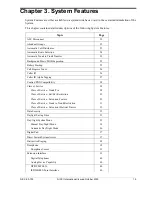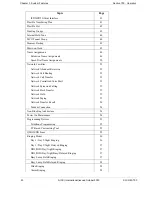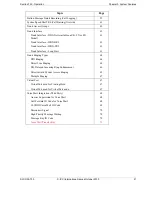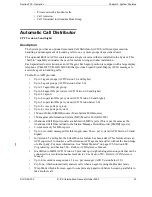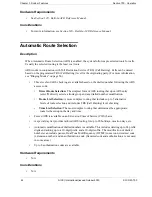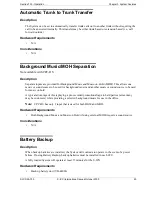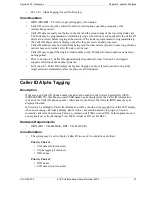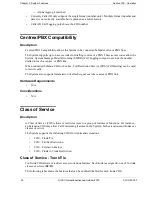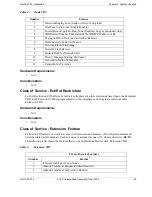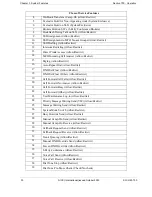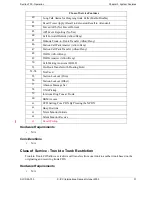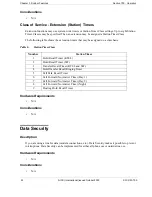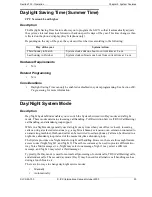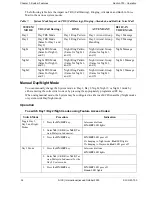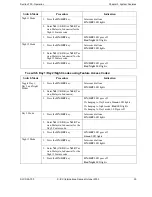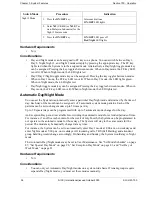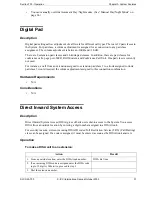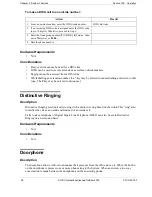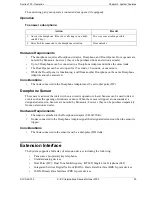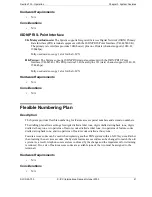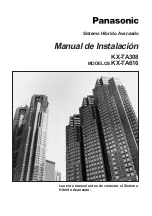
26
S-ICX (International) issued October 2000
S-ICX-50-700
Chapter 3. System Features
Section 700 - Operation
Considerations
•
Any device connected to the System but that does not derive its power from the System must
have a backup power source to operate. These devices include any System Message Detail
Recording (SMDR) (Call Logging) printer (or recorder), fax machine, answering machine,
modem, cordless telephone, etc.
Call Progress Tones
Description
The System supplies a full array of call progress tones. These tones provide audible indications of the
status of calls and include dial tone, busy tone, ringback tone, error tone, confirmation tone, and
splash tone. The complete specification for these tones may be found in
Section 300 - Installation
.
In addition to call progress tones, Direct Station Select (DSS) Light Emitting Diodes (LEDs) and the
display provide additional indication of the status of calls.
Hardware Requirements
•
N/A
Considerations
•
N/A
Caller ID
Description
(
Note:
Analog Caller ID is not available in the UK model).
A properly equipped system supports Caller ID, a service offered by the network telephone service
provider. The Exchange sends calling number information to the system after the first ring. Users with
display telephones can see Caller ID information as incoming calls ring at their extension. They can
also access previous calls via the Caller ID Call Log feature. The Caller ID number is recorded in Call
Logging.
Prior to Version 4.5, the system would not display Caller ID information for an extension that was in
use when a call was received. In Version 4.5 or higher, Caller ID information is displayed on the
second line of an LCD display when an incoming call is received during conversation. If the second
incoming call is from another extension, the LCD displays the extension name or number.
Hardware Requirements
•
ISDN (PRI = VB-44540UK, BRI = VB-44530UK).
Related Programming
•
FF2-0: Caller ID
•
FF2-0: Caller ID Ring Control
•
FF3-0: Call Duration Display

